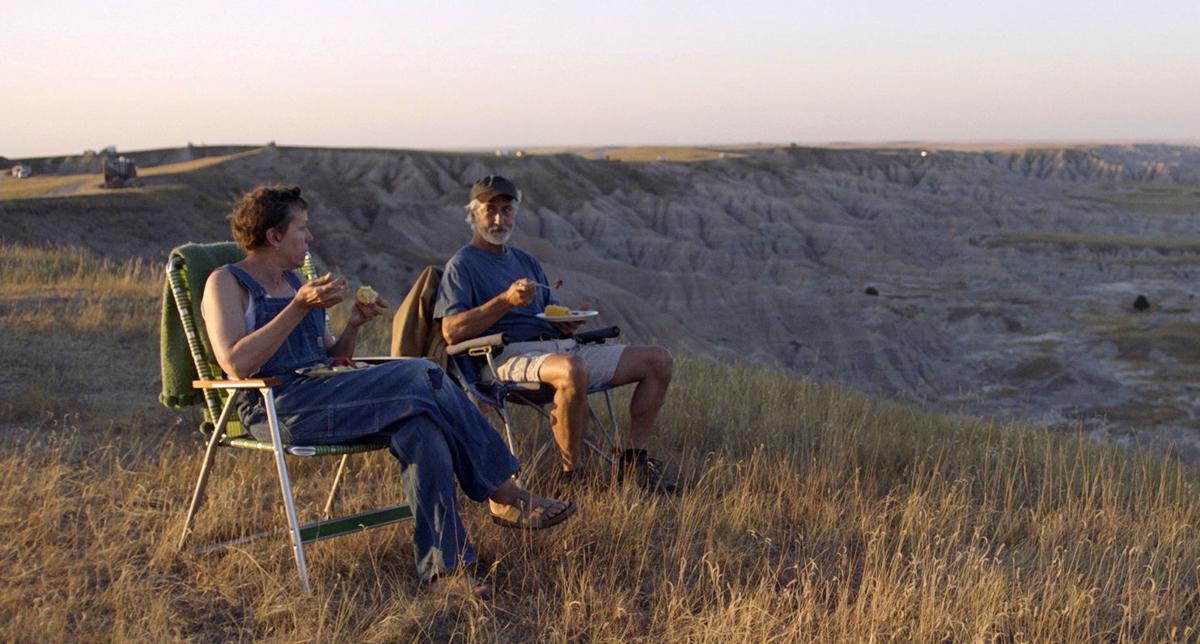Chloé Zhao’s third feature film spans a year-long quest by a woman who has lost everything
The United States is broken. With affordable housing being unwaveringly difficult to find in cities like San Francisco and New York, some people have settled on leading nomadic lifestyles. Nomadland, the third feature film from Chinese-born director Chloé Zhao, is a heart wrenching tale of searching for home after one loses everything.
After the town of Empire, Nevada is shut down due to the closure of the U.S. Gypsum plant, Fern, played by the ever-astounding Frances McDormand, sets off to live in her van, effectively abandoning the notion of living a stable life in a quiet town.
Nomadland follows Fern for a full calendar year as she searches for various temporary jobs and shelters that will let her park her van for the night. The movie is plot-lite. There are no action sequences or moments that leave you wanting more. Zhao’s main goal here is to let the viewer examine and analyze the state of poverty in a country as rich and grand as the United States.
The American Dream will have you believe that it is easy to find a spouse and build a nuclear family as industrial jobs sprout left and right. In seconds, however, all of that can dissipate. Fern lost her job and her husband in such a short time that her life came crumbling down and forced her to recreate how she lives.
Fern’s year-long adventure isn’t as solemn as the plot describes, though it does come close. Her travels are tied together by several other nomads living in near-identical situations to Fern’s. Some of these people are played by tried-and-true actors like David Strathairn, who plays David, whose name is the sole characteristic shared between the actor and character. Other actors, however, are simply playing fictionalized versions of themselves like Swankie and Linda May.
It wouldn’t even be a stretch to call those playing themselves non-actors. They are simply people who lived their truths in a deeply personal fictional tale. Fern’s quest for a home turns less into a search for a place, but a search for people who make her feel like she’s at home.
Fern’s relationship with David is never romantic on-screen, but the quiet passion between the two lead us to believe that in another stable life, they could have found peace together.
Nomadland never wallows in its sadness and morose themes, but instead acts as a 100-minute recapitulation of a woman whose life has been shattered into a million pieces, but can’t be put together like it used to be.
Chloé Zhao’s latest opus shares very similar styles to her 2017 western The Rider. Both tell the tales of midwestern/western people whose lives change in a sudden dramatic way. Each character has, in their brief moments, layers of depth that make them feel less like side pieces in Fern’s tale and more like real people who are just trying to make it.




